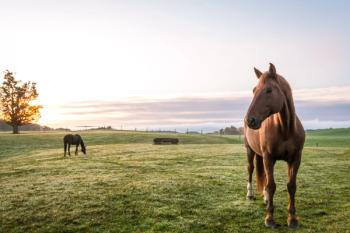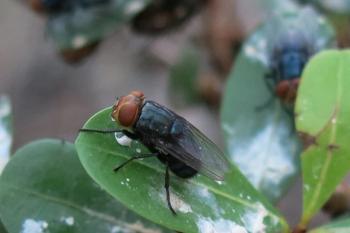
AAEP taskforce to confront compounding
Lexington-In an attempt to assist the profession in handling a delicate issue, the American Association of Equine Practitioners (AAEP) is establishing a veterinary compounding taskforce.
Lexington-In an attempt to assist the profession in handling a delicate issue, the American Association of Equine Practitioners (AAEP) is establishing a veterinary compounding taskforce.
Chaired by Dr. Jim Morehead of Equine Medical Associates in Lexington, the five-member taskforce, comprised of industry, private practice and academic leaders, is designed to tread on territory that's becoming all too familiar to equine practitioners from Maine to Montana.
"Drug compounding has become a common practice," Morehead says. "There's a heightened awareness of the issue. I find it difficult to believe that someone could be a member of AAEP at this point and not be aware that this illegal compounding issue is being addressed."
That said, he adds, "There's a legal way for veterinaians to use compounded pharmaceuticals and then there are illegal compounding practices that occur." The taskforce is charged with helping practitioners differentiate between the offenders and the trustworthy.
Roots of taskforce
The idea for such a taskforce was borne out of last year's annual AAEP convention in New Orleans. At that conference, Dr. Charlotte LaCroix, JD, discussed the legal and illegal methods of compounding. AAEP leadership summarized her highlights and mailed the summary to its members.
Based on member feedback, AAEP moved to create a taskforce dedicated to the development of compounding solutions.
"This is a complex topic with new drugs entering the market all the time and certain standby medications being taken off the market or having manufacturing troubles. Veterinarians need access to compounded pharmaceuticals but there are very well spelled-out guides as to how you can and can't do it," Morehead explains.
Educate first
The taskforce leadership concedes they are not yet fully aware of the magnitude of the problem and predicts the same holds true for the profession at-large. Therefore, the prevailing goal of the new taskforce is to develop educational literature for AAEP membership to guide them on legalities of drug compounding.
Part of the educational strategy involves guidelines to be crafted later this year.
Veterinary compounders are held to the government's well-established standards for legal compounding. But if all compounders were playing by the rules, Morehead says there'd be no need for such an AAEP taskforce.
"There is no doubt some who have pushed the limit," Morehead says.
Given the questionable credibility of certain compounding manufacturers, AAEP says it will begin strictly insisting on the authenticity of its compounding exhibitors. Those who are not following standards will be barred from exhibiting at conventions.
"Our goal is to not only educate members, but to make sure those participating are abiding by law. Once we educate our membership, what is legal and what isn't is a self-correcting problem," he says.
Newsletter
From exam room tips to practice management insights, get trusted veterinary news delivered straight to your inbox—subscribe to dvm360.






